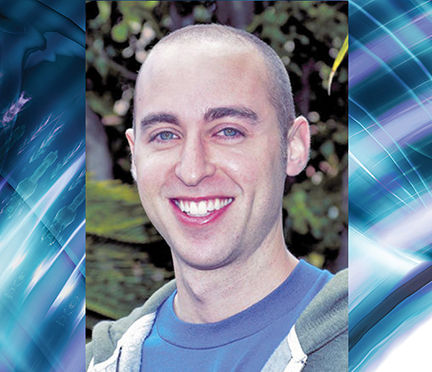The sports documentaries I enjoy most typically take an event I’m familiar with and add some new elements and new bits of information that can magnify and intensify the experience. Some of my favorite films in the ESPN “30 for
The sports documentaries I enjoy most typically take an event I’m familiar with and add some new elements and new bits of information that can magnify and intensify the experience. Some of my favorite films in the ESPN “30 for 30” series have been about Michigan’s Fab Five basketball team, Magic Johnson’s HIV announcement and the events surrounding famed Chicago Cubs fan/scapegoat Steve Bartman.
I’ve known and been able to remember a good amount about each, but the films brought new anecdotes to light, spoken by the people who were there to witness them firsthand. Gaining that type of vantage point and taking in that emotion elevates these stories from mere memories to happenings, connecting my remembrance to the event in a much deeper way.
I had no knowledge of Eddie Aikau before moving to Kauai. The person who came here from New Jersey almost five years ago wouldn’t have had the slightest understanding of a conversation regarding “The Eddie.” He would have seen an “Eddie Would Go” bumper sticker and probably assumed it had to do with big waves, but had no context or connection with the source material.
That’s changed greatly in these past five years and I’ve a learned a good amount about Eddie’s exploits, so I was in that perfect headspace to watch and enjoy ESPN’s film “Hawaiian: The Legend of Eddie Aikau,” which debuted Tuesday. For me, watching a movie that I already know has a tragic ending actually accentuates the tension. Had I not known of Eddie’s ill-fated Hokule’a attempt, the story may have lacked that same dramatic buildup.
“Hawaiian” was an introduction of sorts for many people learning of the Aikau tale for the first time. It was also a crystallization for some of us with an elementary understanding of who Eddie was as a human being.
Director Sam George did a great job with what little material exists of Eddie, himself. George had to lean on the details provided by his interview subjects, who all told stories as if they occurred 40 days ago, rather than 40 years. The director was formulaic in his storytelling, but nothing felt stale. The fresh recordings of Eddie’s voice and the raw emotion of his family and friends added elements that I’m sure were new for even those who knew the full narrative – the tale shared by “Rabbit” Bartholomew about how Eddie had stepped in to avert a potentially deadly confrontation and assist in a peaceful resolution; the recording of Eddie singing his original Hokule’a song for those who would be the final people to ever share his company; Nainoa Thompson reflecting with difficulty on the final moments he saw Eddie, witnessing the steely determination in his eyes as he paddled away to help his Hokule’a shipmates.
I wonder now about the emotions of the likely millions who watched and learned about Eddie for the first time in this film. Without knowing how this story was to end, did they view the first 75 minutes as anything other than just the legend of a brave Hawaiian who became well known for surfing big waves? Because I feel like the film’s final act – just as the final act of Eddie’s life – transforms how the early portions are consumed.
It crystalizes his desire to not tame the ocean, but be one with it. His desire to safely pull hundreds who did not share his sense and instinct out of the waters of Waimea Bay. His want to show that his ancestors had arrived not by accident, but by destiny.
His willingness – some may say need – to be the vessel for safety; to be the light, the hope for others as he paddles into eternity is now the context for which we view Eddie Aikau’s heroic existence.
• ‘My Thoughts Exactly’ appears Sundays, Wednesdays and Fridays in The Garden Island. Email David Simon your comments or questions to dsimon@thegardenisland.com. Follow David on Twitter @SimonTGI


